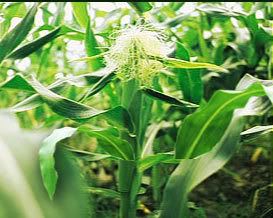They've already noticed this in Iowa

WASHINGTON, Oct. 11 The National Research Council has warned that the increased use of corn to produce ethanol could harm U.S. water quality and create water supply problems.
The NRC looked at how shifts in the nation's agriculture to include more energy crops, and potentially more crops overall, could affect water management and the long-term sustainability of biofuel production.
In terms of water quantity, researchers found agricultural shifts to growing corn and expanding biofuel crops into dry regions could change current irrigation practices and greatly increase pressure on water resources in many parts of the United States.
For example, the report noted that in the Northern and Southern Plains, corn generally uses more water than soybeans and cotton, while the reverse is true in the Pacific and mountain regions of the nation. Water demands for drinking and such uses as hydropower, fish habitat, and recreation could compete with, and in some cases constrain, the use of water for biofuel crops.
Consequently, researchers said, growing biofuel crops requiring additional irrigation in areas with limited water supplies is a major concern.
The study was sponsored by the McKnight Foundation, Energy Foundation, National Science Foundation, U.S. Environmental Protection Agency, and National Research Council Day Fund.
Phila of Bouphonia posted on this:
Where numerous wells withdraw large quantities of water over time...regional declines in water levels may occur. In Iowa, the most widespread of these declines has occurred in the extensive Cambrian-Ordovician aquifer. Regional water levels have dropped about 100 feet in this aquifer since use began in the late 1800s, with the greatest lowering of water-levels near major pumping centers. Other declines of a more local nature have occurred, such as those in the Cedar Rapids and Iowa City areas where the Silurian aquifer is heavily used.
In related news, ever-expanding ethanol crops in the vicinity of Chesapeake Bay are expected to poison it with agricultural runoff:The study forecasted that farmers in the bay watershed area will field more than half a million acres of corn over the next five years, reports The Washington Post. Corn fields usually produce more polluted runoff than other crops, creating a problem for the bay.
“It’s going in the opposite direction from where we want to go,” Jim Pease, a Virginia Tech professor and one of the study’s authors, told the newspaper.
It seems logical that increased runoff from the ethanol boom could pose a problem for Iowa's groundwater, too.

No comments:
Post a Comment